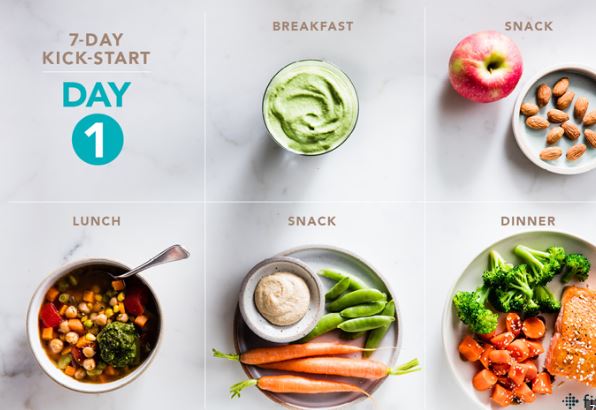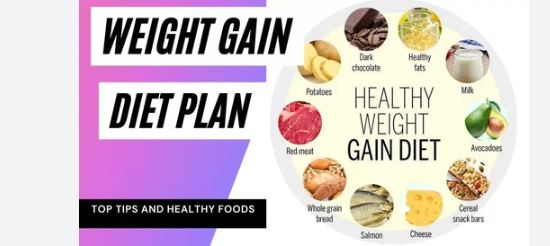Best diet plan for weight loss
Outline
- Introduction
- Understanding the importance of a good diet plan.
- Determining Your Goals
- Setting realistic weight loss goals.
- Types of Diet Plans
- Exploring popular diet plans for weight loss.
- The Mediterranean Diet
- Principles and benefits.
- Low-Carb Diet
- How it works and its effectiveness.
- Intermittent Fasting
- Different methods and its impact on weight loss.
- Vegetarian and Vegan Diets
- Benefits and considerations for weight loss.
- DASH Diet
- Overview and effectiveness.
- Flexitarian Diet
- Incorporating plant-based foods for weight loss.
- Paleo Diet
- Understanding its principles and potential benefits.
- Keto Diet
- How it works and its effectiveness for weight loss.
- Whole30 Diet
- Overview and potential drawbacks.
- Weight Watchers (WW)
- Features and support for weight loss.
- Flexibility and Sustainability
- Importance of choosing a diet plan that fits your lifestyle.
- Conclusion
- Recap of key points and recommendations for choosing the best diet plan.

Introduction
In the pursuit of weight loss, one of the most crucial factors to consider is the diet plan. With numerous options available, it’s essential to find the one that suits your lifestyle, preferences, and health goals. A well-designed diet plan not only aids in shedding excess pounds but also promotes overall health and well-being.
Determining Your Goals
Before diving into any diet plan, it’s vital to establish realistic weight loss goals. Setting achievable targets ensures motivation and prevents frustration. Consulting with a healthcare professional or a nutritionist can help in setting personalized goals based on factors like age, gender, activity level, and current health status.
Types of Diet Plans
There’s no one-size-fits-all approach to weight loss, and various diet plans cater to different preferences and needs. Let’s explore some popular options:
The Mediterranean Diet
This diet emphasizes whole grains, fruits, vegetables, fish, and healthy fats like olive oil. It’s rich in antioxidants and has been linked to reduced risk of heart disease and improved weight management.
Low-Carb Diet
By limiting carbohydrates, this diet encourages the body to burn stored fat for energy, leading to weight loss. It includes foods like meat, fish, eggs, nuts, seeds, and non-starchy vegetables.
Intermittent Fasting
This approach alternates between periods of eating and fasting. It can improve metabolic health, aid in weight loss, and may have other health benefits like reduced inflammation and improved brain function.
Vegetarian and Vegan Diets
Plant-based diets focus on fruits, vegetables, grains, and legumes while eliminating meat and animal products. They’re associated with lower body weight, reduced risk of chronic diseases, and environmental sustainability.

DASH Diet
The Dietary Approaches to Stop Hypertension (DASH) diet promotes fruits, vegetables, whole grains, lean proteins, and low-fat dairy to lower blood pressure and promote weight loss.
Flexitarian Diet
This flexible approach encourages mainly plant-based foods while allowing occasional meat and dairy. It offers the benefits of a vegetarian diet with the flexibility of occasional animal products.
Paleo Diet
Inspired by the eating habits of our Paleolithic ancestors, this diet focuses on whole foods like meats, fish, fruits, vegetables, nuts, and seeds while excluding processed foods, grains, and dairy.
Keto Diet
The ketogenic diet involves high fat, moderate protein, and very low carbohydrate intake, leading to a state of ketosis where the body burns fat for fuel. It’s effective for rapid weight loss but requires strict adherence.
Whole30 Diet
This 30-day program eliminates sugar, alcohol, grains, legumes, soy, and dairy to reset the body and identify food sensitivities. While it can lead to short-term weight loss, its restrictive nature may not be sustainable long-term.
Weight Watchers (WW)
This program assigns point values to foods based on their nutritional content and encourages portion control and mindful eating. It provides support through meetings, online tools, and a community for sustainable weight loss.
Flexibility and Sustainability
Regardless of the chosen diet plan, sustainability is key to long-term success. Opt for a plan that aligns with your lifestyle, preferences, and cultural background. Incorporating flexibility allows for occasional indulgences and prevents feelings of deprivation, making the journey enjoyable and sustainable.
Conclusion
Choosing the best diet plan for weight loss involves considering various factors like personal preferences, health goals, and lifestyle. Whether it’s the Mediterranean diet, low-carb approach, intermittent fasting, or any other plan, the key is finding what works best for you and sticking with it consistently. Remember, sustainable weight loss is not a quick fix but a journey towards a healthier lifestyle.
FAQs (Frequently Asked Questions)
- Is it necessary to follow a specific diet plan for weight loss?
- While a structured diet plan can be helpful, it’s not mandatory. Making healthier food choices and controlling portion sizes can also aid in weight loss.
- How long does it take to see results on a diet plan?
- Results vary depending on factors like starting weight, adherence to the plan, and individual metabolism. Typically, noticeable changes may occur within a few weeks to a month.
- Can I combine different diet plans for better results?
- Combining elements of different diet plans can be effective, but it’s essential to ensure nutritional balance and consult with a healthcare professional for personalized advice.
- What should I do if I hit a weight loss plateau on my diet plan?
- Plateaus are common during weight loss journeys. To overcome them, consider adjusting your calorie intake, increasing physical activity, or trying new foods to reignite progress.
- How do I maintain weight loss after reaching my goal?
- Transitioning to a balanced diet with moderate calorie intake, regular exercise, and mindful eating habits can help in maintaining weight loss long-term